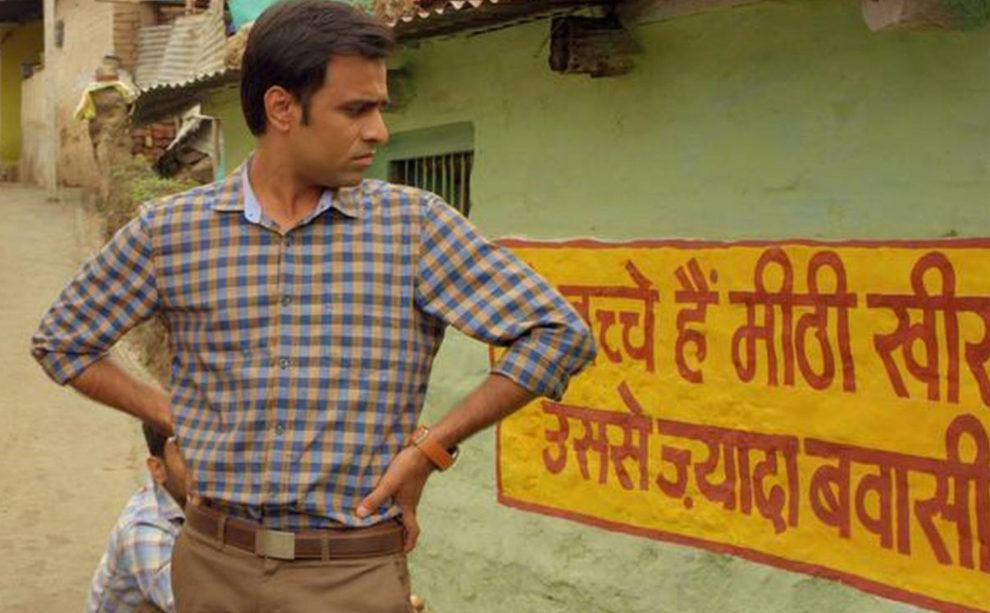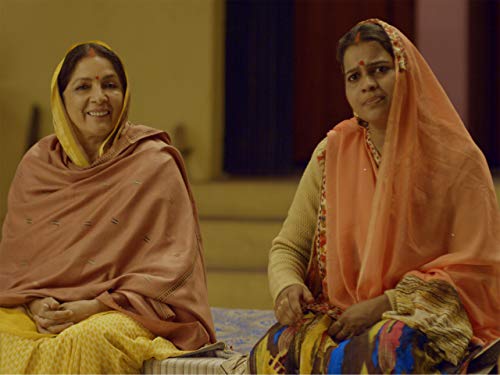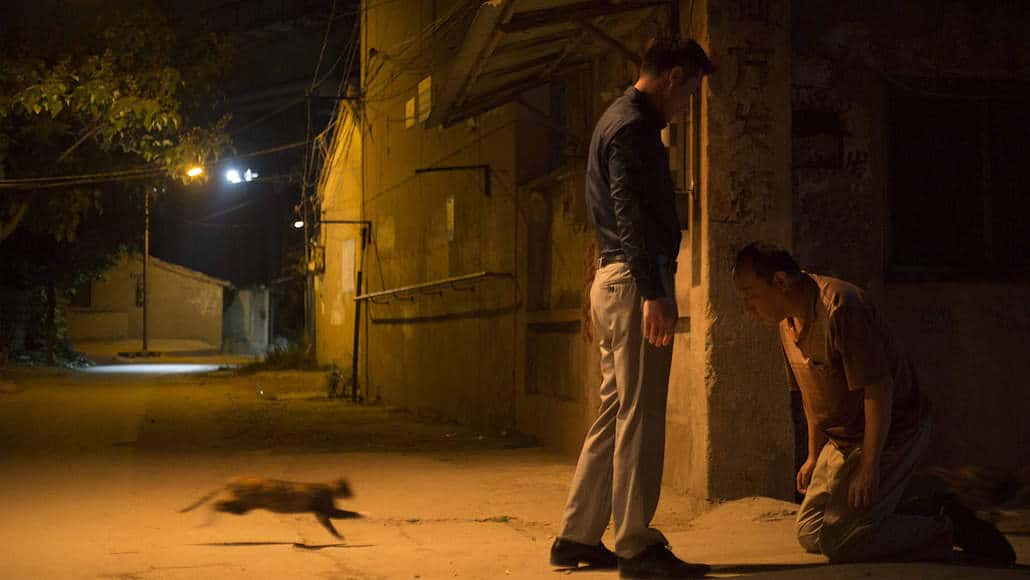„Panchayat”, the Indian comedy-drama series streaming on Amazon Prime directed by Deepak Kumar Mishra, is surprisingly witty and amusing. You don't need a lot of free time to watch it, as it conists of eight brief 30-min episodes. They form a linear story altogether, but each of them is a standalone anecdote, so you can take small doses.
Buy This Title
on Amazon
The title, referring to a specific Indian form of local government, rightly suggests a rural backdrop. Abishek Tripathi (Jitendra Kumar), a city boy, and a fresh university graduate, tired of staying idle at home (and also lacking better job offers), accepts a safe, but also miserably paid government clerical position in Uttar Pradesh Phulera village. However, his aspirations reach far beyond being a secretary at the panchayat office. He dreams of an MBA career (read: prestige and money), but before that, he has to prepare for a demanding exam for candidates. Thus village is just a temporary harbor, which he is going to abandon as early as possible. When he confesses to a friend Prateek (Biswapati Sarkar) how grim his near future seems, he tries to cheer and motivate him, telling him that he would be like iconic Mohan from Ashutosh Gowariker's film “Swades” and that having learned at source about provincial problems, he can impress his future employer.
Unfortunately, unlike Mohan, Abishek is not a bright engineer with a revolutionary urge, and the province itself doesn't want to be revolutionized. It's a sleepy village, with a mosaic of box-shaped houses, a little pastel temple, troubled with mundane worries. Inhabitants treat Abishek with cordiality, though a bit of a distance, as if he was an eccentric relative paying a visit. His presence doesn't make any difference to them. Therefore, we won't be watching a story about an educated savior, who, with the power of his privileges and position, will bewitch reality, will bear the torch of knowledge and progress and banish poverty.
Abishek is not a model crystal hero, only a charming lummox, helpless with his ordinariness, easily surrendering to frustration and irritation. Moreover, he hardly ever manages to hide his negative emotions, and Jitendra Kumar portrays it perfectly with stares full of despair or rolling eyes in a clash with the weirdest of every day problems he needs to solve. His job is tough since the beginning. Despite officially, and according to parities, Manju Devi (fantastic Neena Gupta) heading the panchayat, her husband Brij Bhushan (Raghubir Yadav) holds the actual power. the Panchayat office, where the new secretary has his room, provides very modest living conditions. Abishek's arrival ignites a series of farce events, starting with the disappearance of a key to the office. He, in a day's work, will deal with such tangles as a married couple's quarrel about their newborn's name, a haunted tree, or the local community's anger on the propaganda population-restriction slogan “two children are sweet dessert, rest are piles” painted on the wall under government's guidance. Whoever visited India, will smirk, recognizing familiar behaviors and situations.
The characters are a likable, colorful bunch, and you accept them with all their flaws and drolleries and the ensemble cast is doing an excellent job finding the right balance between the dramatic and the comic. Brij Bhushan in the interpretation of Raghubir Yadav (a great character actor and a stage veteran) is a good-hearted man, not a stereotypical patriarchal oppressor. His wife, a seemingly obedient, traditional housewife, who's leaving all the important decisions to the spouse, always finds a way to rebuke Brij, and the word scuffles of the duo are hilarious.
„Panchayat” isn't pretending to be anything more than a pleasing entertainer, but under the light and facetious façade manages to smuggle sharp bits of satire. Everyone and everything is a target: smooth city boys, simple-hearted provincials motivational internet talks, patriarchal schemes, nepotism, bribery, institutional negligence of regulations or police inabilities. As to the latter, there's an excellent scene, when Abishek is reporting stolen items, but he can't recall the brand. The officer calms him down, saying that it doesn't matter anyway, because registering the case is a pure formality, as there are no chances of recovering missing goods.
Inevitably, politics is also a joking matter. Its functioning is rightly summed up by Brij, who explains to his wife that one doesn't win elections supporting righteous matter.
On the example of Abishek, the director shows the worries of young generations of Indians, who are obliged to prove themselves, what in a country with such a big population is difficult. Education, passing your exams is not enough. To find a good job and make your family proud, you need to finish the best universities with excellent results. You need to surpass so many others. Landing in a position of a simple clerk in a dusty office in a village, who's familiar to none, is not a dream come true.
Though “Panchayat” isn't firing any big guns. Makers only blink to their audience: “oh well, that's how it is, we can't do much about it, so let's just laugh.” They, unlike their protagonist, don't want to reform anything or seriously talk about rural problems, corruption (here it's mostly vegetable-based), or façade government's actions like the family planning one. “Panchayat” was made to please, entertain, but also inspire – people are mostly good, willing to support each other, and the majority of problems are only a tempest in a teacup easy to extinguish.
The second season has been already announced.

















